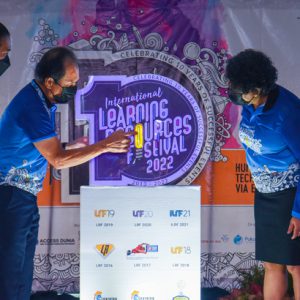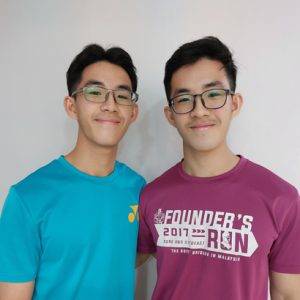Featuring academicians and industry leaders who shared valuable insights on the importance of shifting education-industry paradigm, closing the skills gap, and what it takes to discover new frontiers.
Kuala Lumpur, 7 October 2017 – As part of its initiative for its 25th Anniversary theme “Better Health Better Society”, International Medical University Malaysia (IMU) recently organised a forum at its auditorium attended by IMU students, alumni, invited undergraduate students from other universities, career counsellors, academicians, faculty members and industry leaders. The forum was titled Linking Universities with Industry Leaders: Reshaping, Enhancing & Disrupting – Bridging the Gap and focused on the collaborative efforts between higher learning institutions like IMU and the industry to ensure ready-skilled graduates equipped not just with technical skills but also soft skills and the right aptitude to create positive shifts in communities. Present at the forum was special guest YBrs Dr Mohd Nor Azman bin Hassan, Deputy Director General of Higher Education (IPTS), Ministry of Higher Education (MOHE) representing Yang Berbahagia Datin Paduka Ir Dr Siti Hamisah Binti Tapsir, Director General, MOHE. The forum kicked off with a welcome address by Organising Chair Prof Beek Yoke Chin, and an opening address by Prof Abdul Aziz Baba, Vice Chancellor of IMU. Invited up on stage to give a keynote address was YBrs Dr Mohd Nor Azman. Titled MOHE Policy – 2U2I, Dr Mohd Nor Azman shared with the audience the ministry’s blueprint for higher education in Malaysia that is centred around learned values and talent. In his address, he elaborated on the idea of 2U2I, which equated to “2 Years in Uni, 2 Years in Industry Training.”
Said Dr Mohd Nor Azman, “The industry, the career and the community can work together…to achieve the nation’s target where everything is about talent and how we develop talent. 2U2I is about enhancing curriculum and about inviting higher learning institutions to apply higher programmes to integrate a mixture of experiential learning and entrepreneurial immersive into the curriculum in many ways.”
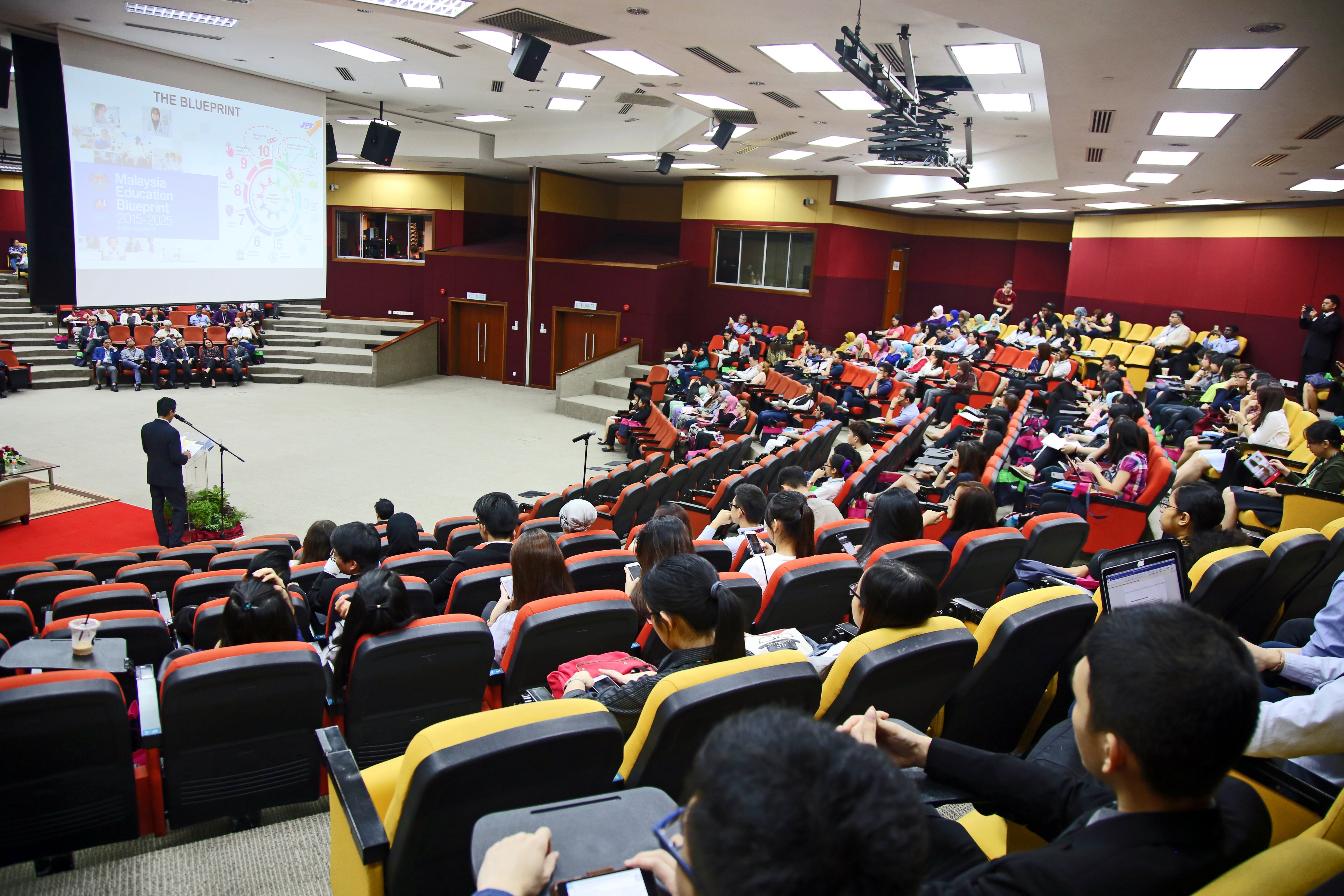 He then went on to elaborate how CEOs from across industries are “spending time in the university up to 30 hours a year sharing their knowledge and experience and telling universities what to look for in the industry.” Urging higher education institutions to take a proactive role in this initiative, Dr Mohd Nor Azman said, “This will eventually help us recreate, reshape and redesign the way our education is being delivered towards a holistic transformative approach. It’s all about industry engagement, about redesigning the curriculum and also about producing entrepreneurial elements that we want to have.” By doing so, said Dr Mohd Nor Azman, Malaysian talent will benefit by gaining access and experience from industry practitioners in a real-work environment and take opportunities as well as enhance practical and soft skills. Also, having a collaborative effort with the industry players will help higher education institutions keep updated with whatever the demands of the industry are.
He then went on to elaborate how CEOs from across industries are “spending time in the university up to 30 hours a year sharing their knowledge and experience and telling universities what to look for in the industry.” Urging higher education institutions to take a proactive role in this initiative, Dr Mohd Nor Azman said, “This will eventually help us recreate, reshape and redesign the way our education is being delivered towards a holistic transformative approach. It’s all about industry engagement, about redesigning the curriculum and also about producing entrepreneurial elements that we want to have.” By doing so, said Dr Mohd Nor Azman, Malaysian talent will benefit by gaining access and experience from industry practitioners in a real-work environment and take opportunities as well as enhance practical and soft skills. Also, having a collaborative effort with the industry players will help higher education institutions keep updated with whatever the demands of the industry are.
The forum then proceeded to three sessions, each one focusing on the importance of linking universities with industries. Each moderated session featured an esteemed panel of speakers from a variety of industries to offer the audience a complete overview of opinions and thoughts. Speakers were given five minutes to share their experience and presentation followed by five minutes of Q&A.
The three sessions for the forum were RESHAPING: Shifting Education-Industry Paradigm; ENHANCING: Closing the Skill Gaps; and DISRUPTING: Breaking Boundaries, Discovering New Frontiers.
| SESSION 1 – RESHAPING: Shifting Education-Industry Paradigm |
| Moderator |
Ahmad Shahizam Chief Corporate Officer, IHH Healthcare Berhad |
| Panel of Speakers |
Anwar Anis Project Consultant, TE Asia Healthcare Partners; Jay Padasian Senior Vice President, Healthcare Bio Industry, Malaysian Bioeconomy Development Corporation; Viva Chan Director, Strategic Marketing and Business Development, Thermo Fisher Scientific; Angela Yap Founder, AKASAA Management |
| The focus of this session was to gain insight from leading industry movers and shakers on the role and importance of STEM (Science, Technology, Engineering and Maths) among the digital citizens. During the session, all speakers agreed that in order to reshape the education-industry paradigm, it is important to cultivate a creative and innovative society. Said Anwar Anis, “You must challenge the status quo, you must participate.” He also commended IMU’s effort in encouraging creativity in its students, which has resulted in IMU’s graduates being among the best in the industry. Meanwhile, Jay Padasian shared that to find a niche, it is “not about capturing what is now but really trying to see what’s happening in the 10 to 15 year horizon and actually working on that because that’s the only way that we can actually do something.” He added, “For universities especially, the curriculum needs to be updated immediately from the student’s perspective. Whatever you learn is going to change and it is going to continue to change. Hence, it is not about catching up but more about finding the right spot.” Ultimately, the panel agreed that because things are changing, it is important to accommodate for these changes. Hence higher education institutions will need to establish creativity skills especially in science students with capacity for innovation to ensure that the nation develops talent who are able to fit in with the new economy. |
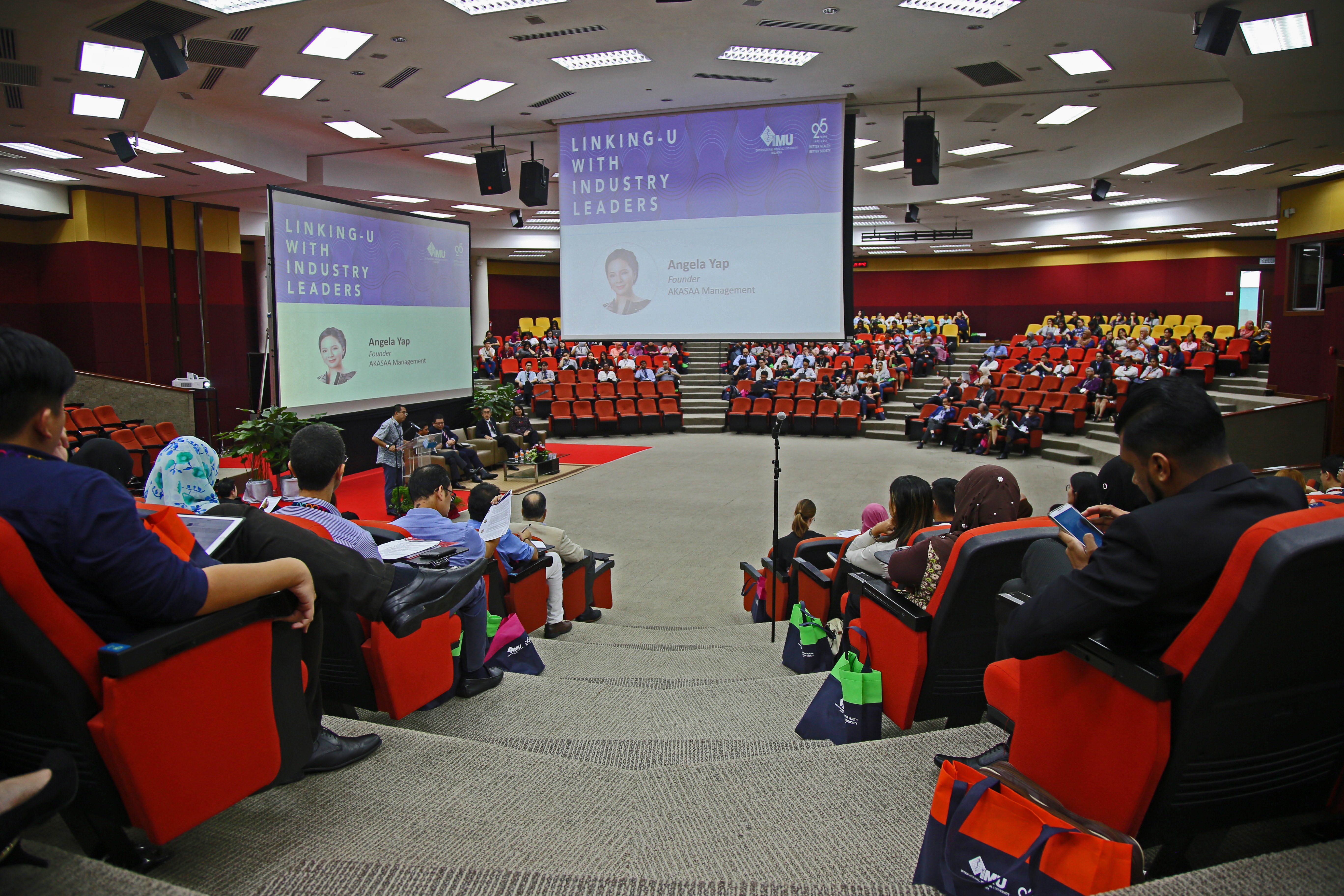
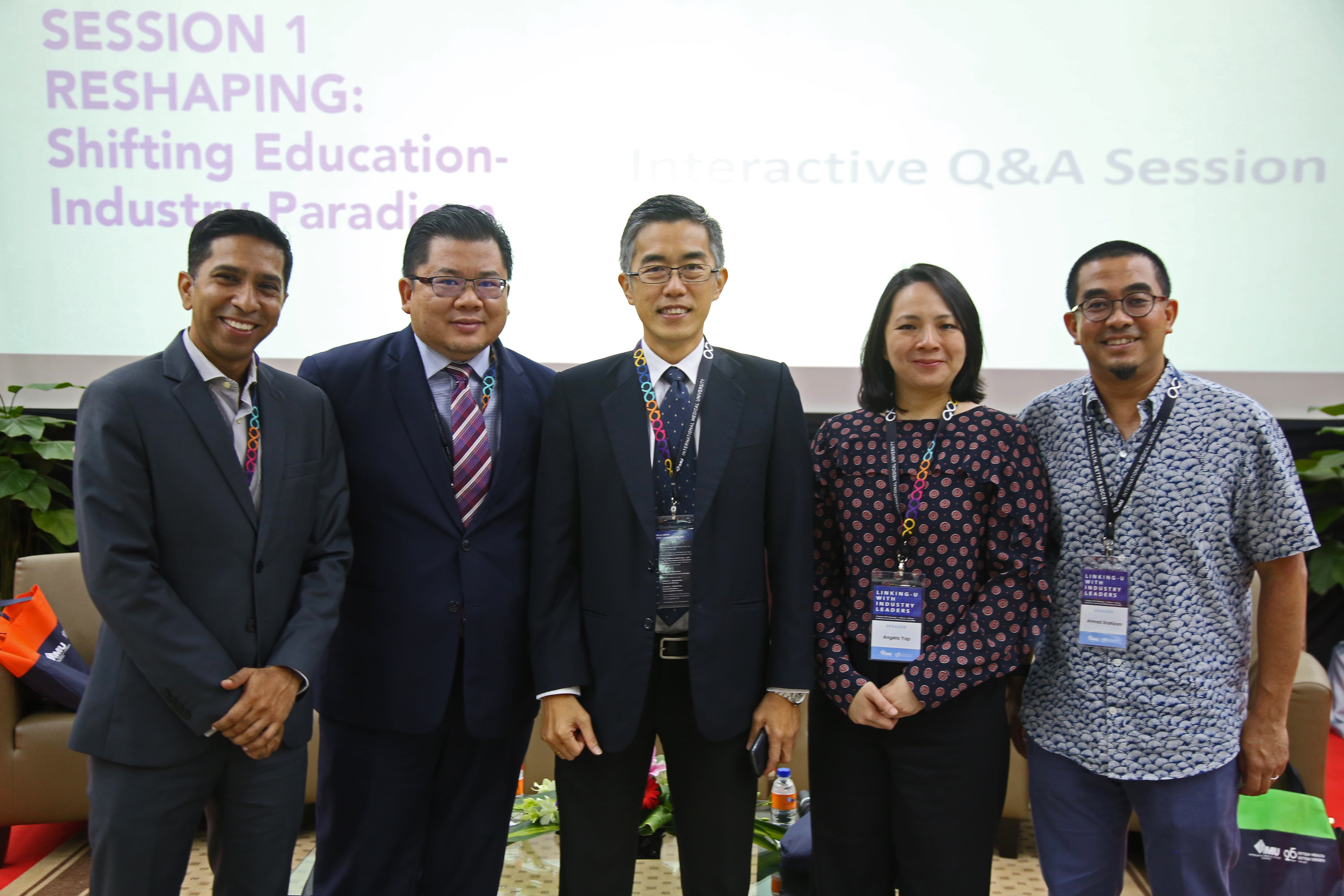
| SESSION 2 – ENHANCING: Closing the Skill Gaps |
| Moderator |
Prof Toh CG IMU’s Pro Vice Chancellor, Development |
| Panel of Speakers |
Dr Chong Su Lin Chief Executive Officer, IMU Healthcare Ewe Kheng Huat Executive Director, Pharmaceutical Association of Malaysia Dr Rezal Khairi Ahmad Chief Executive Officer, NanoMalaysia Berhad Dato’ Dr Azmi Shapie Secretary, Malaysia Medical Council |
| Meanwhile, for the second session, invited speakers shared their thoughts on the importance of fostering strong collaborative efforts between universities and industries to provide and promote the exchange of knowledge and expertise, creating emerging trends and developing career opportunities. Our panel of speakers shared their thoughts that mainly focused on the importance of core competencies regardless of industry. Ewe Kheng Huat emphasised on how essential it is for students to have leadership qualities as well as good communication skills. For Dr Chong Su Lin, universities should teach students to be resourceful and to have living skills, preparing them for the future work environment. “Research,” said Dr Rezal Khairi Ahmad, “is part and parcel that is very much needed. Without research, we cannot move forward and cannot advance forward in terms of looking at the new areas of medical.” Dr Rezal shared that those trained with good research skills “will understand better and know what is needed in enhancing the country’s need.” In summary, our speakers agreed that it is important to capitalise on new health regulations and technology to push medical care in Malaysia so that the younger generation of talent can be exposed to all techniques and approaches to push healthcare to greater heights. |
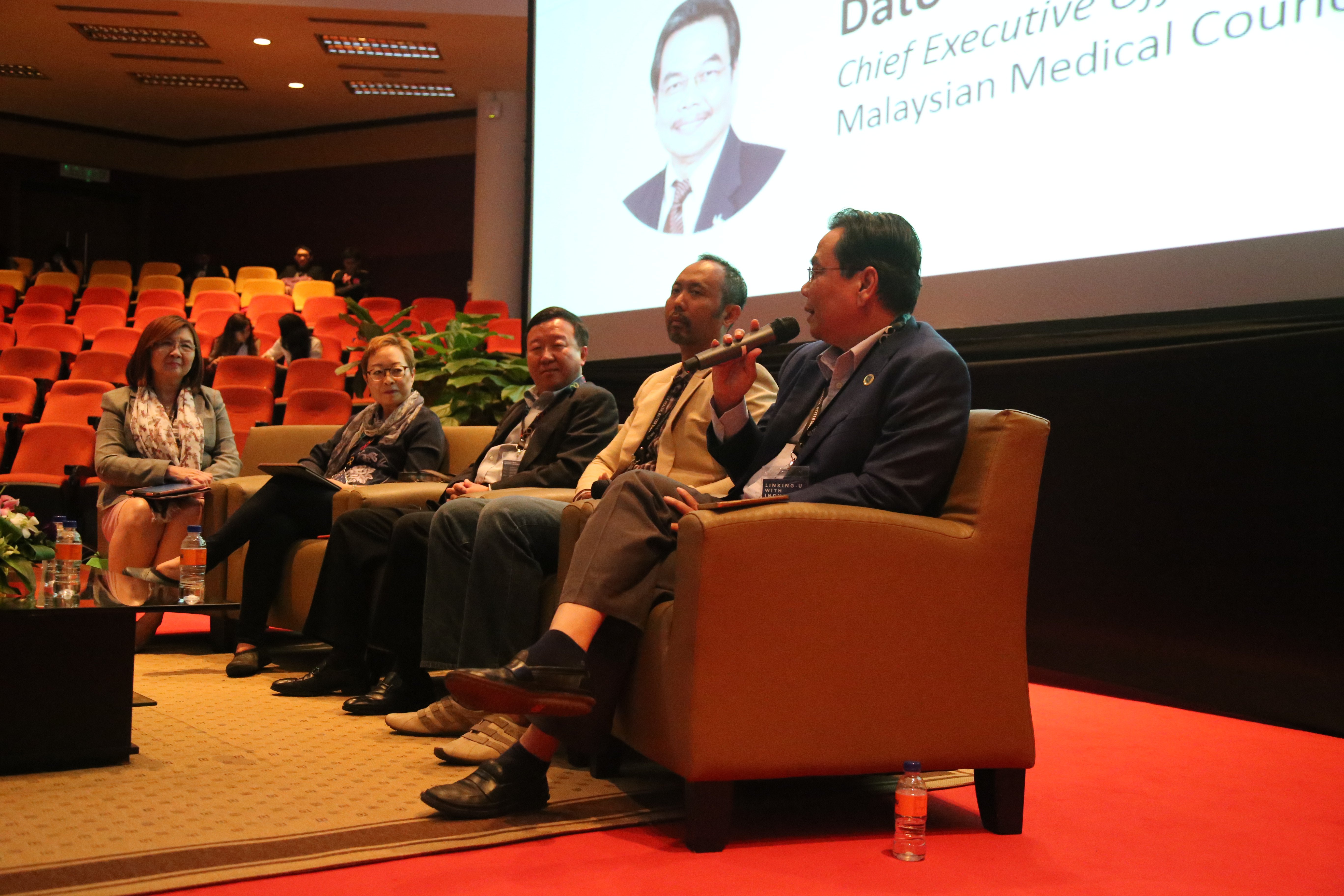
| SESSION 3 – DISRUPTING: Breaking Boundaries, Discovering New Frontiers |
| Moderator |
Prof Beek Yoke Chin Organising Chair |
| Panel of Speakers |
Azran Osman-Rani Investor and Advisor of iFlix and CEO, and Co-Founder of Naluri Hidup Rahayu Ramli Education Program Manager, Google Nadiah Wan Group Chief Corporate Officer and Chief Executive Officer, Tropicana Medical Centre Woon Tien Ern Senior Consultant, Matrix Paradigm |
| For the final session, the topic focused on how integrating IMU’s core ethos, the 3Is – Innovation, Imagination and Insight – can help one stay competitive and relevant in the ever-changing job landscape, as well as the importance of being able to adjust one’s skills and competencies to industrial needs. Leading business innovators and industry disrupters made up the panel of speakers. It was an exciting session as the speakers had interesting perspectives when it came to being disruptive, especially in the digital age. Many shared their personal experience, like Nadiah Wan who told the audience of how her “disruptive” career choices have led to her joining Tropicana Medical Centre as its current CEO. “It doesn’t matter how long you stay in a job,” she said during her presentation. “It’s really about what you want to get out of it and you have to have the courage to leave. I think innovation is really driven by your desire to do something about a problem and it’s a problem that that bugs you and you just want to keep improving on it. Whatever it is, remind yourself that there is always a chance to do better.” In his segment, Azran Osman-Rani highlighted how just having an idea is not enough if it is not acted upon. “It’s rarely about the idea itself but about how you follow through on it. Simply generating ideas isn’t where value is. The real difference comes in your ability to put it through. So point number one for me is the courage to actually make the leap, taking the idea and pushing through ahead. Point number two for me is focus – being 100% focused and 100% committed. The third is of course speed, to move incredibly fast.” Referring to IMU’s 3Is, Woon Tien Ern shared that disruptiveness and breaking new frontiers have to come from innovation where one sees change or risk as an opportunity to make things happen. However, imagination is also important to make tomorrow’s inventions today’s reality. Finally, said Woon, insight is where one is willing to change and not take things for granted. “At the end of the day, we need to work hard and smart. We have to have the intention. My advice is to challenge the mindset.” |
Aside from these three rousing sessions, guests to the forum were also invited to a lunch and viewing of booths that focused on career guidance and job opportunities. Meanwhile, industry leaders and faculty members were specially invited to a roundtable talk and networking lunch hosted by Prof Abdul Aziz Baba. Before the end of the event, Dr Mei Ling Young, Deputy Vice Chancellor, International and Engagement, IMU, shared her closing address followed by refreshments while guests networked with the industry leaders.
All in all, it was a successful forum where the audience was treated to a day of inspiring ideas. The forum was definitely a great start by IMU in response to the Ministry of Higher Education’s policies for 2U2I, bridging future talent with industries to be on the same page for the country’s future in terms of a new redesigned educational path.
 He then went on to elaborate how CEOs from across industries are “spending time in the university up to 30 hours a year sharing their knowledge and experience and telling universities what to look for in the industry.” Urging higher education institutions to take a proactive role in this initiative, Dr Mohd Nor Azman said, “This will eventually help us recreate, reshape and redesign the way our education is being delivered towards a holistic transformative approach. It’s all about industry engagement, about redesigning the curriculum and also about producing entrepreneurial elements that we want to have.” By doing so, said Dr Mohd Nor Azman, Malaysian talent will benefit by gaining access and experience from industry practitioners in a real-work environment and take opportunities as well as enhance practical and soft skills. Also, having a collaborative effort with the industry players will help higher education institutions keep updated with whatever the demands of the industry are.
He then went on to elaborate how CEOs from across industries are “spending time in the university up to 30 hours a year sharing their knowledge and experience and telling universities what to look for in the industry.” Urging higher education institutions to take a proactive role in this initiative, Dr Mohd Nor Azman said, “This will eventually help us recreate, reshape and redesign the way our education is being delivered towards a holistic transformative approach. It’s all about industry engagement, about redesigning the curriculum and also about producing entrepreneurial elements that we want to have.” By doing so, said Dr Mohd Nor Azman, Malaysian talent will benefit by gaining access and experience from industry practitioners in a real-work environment and take opportunities as well as enhance practical and soft skills. Also, having a collaborative effort with the industry players will help higher education institutions keep updated with whatever the demands of the industry are. 








